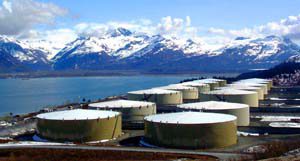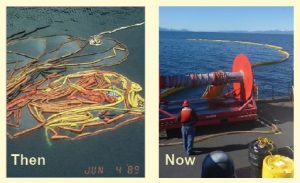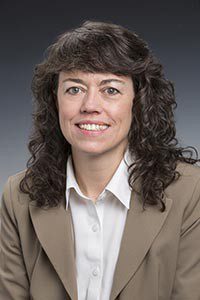Update on COVID-19 impacts on Council activities
 The Prince William Sound Regional Citizens’ Advisory Council is scheduled to hold a Board meeting on Thursday and Friday, May 7-8, 2020. Today the decision was made by the Board to hold the meeting through virtual attendance only, by video/teleconference.
The Prince William Sound Regional Citizens’ Advisory Council is scheduled to hold a Board meeting on Thursday and Friday, May 7-8, 2020. Today the decision was made by the Board to hold the meeting through virtual attendance only, by video/teleconference.
The meeting schedule and agenda will be released the week prior as usual. Information on how to join the teleconference will be provided at that time.
Both Council offices (Anchorage and Valdez) are temporarily closed as a safety precaution due to the COVID-19 pandemic. Council staff are conducting business remotely. All other Council meetings are being offered via teleconference only. Information on how to join meetings can be found in individual meeting announcements or by contacting staff.
The health and safety of Council staff and volunteers are our top priority and will drive decisions as the situation evolves and more information becomes available.
Additional updates on COVID-19 impacts to Council activities and other information related to this situation can be found here: COVID-19: Effects on Council activities
News release: PWSRCAC Board Meeting Scheduled For May Will Be Virtual Only (PDF)
 The U.S. Coast Guard has recertified the Council as meeting its responsibilities under the Oil Pollution Act of 1990. In a February 25 letter to the Council, Rear Admiral M. T. Bell, Commander of the Coast Guard’s District 17 in Juneau, notified the Council of recertification. The Act requires the Council to be recertified annually as the official citizens’ advisory group to the oil industry in Prince William Sound. Guidelines established in 2002 streamlined the recertification process for two out of three years, with every third year requiring stricter procedures. The more extensive process was used this year. The new recertification expires February 28, 2021. At that time, the Council is scheduled to undergo the streamlined version of recertification.
The U.S. Coast Guard has recertified the Council as meeting its responsibilities under the Oil Pollution Act of 1990. In a February 25 letter to the Council, Rear Admiral M. T. Bell, Commander of the Coast Guard’s District 17 in Juneau, notified the Council of recertification. The Act requires the Council to be recertified annually as the official citizens’ advisory group to the oil industry in Prince William Sound. Guidelines established in 2002 streamlined the recertification process for two out of three years, with every third year requiring stricter procedures. The more extensive process was used this year. The new recertification expires February 28, 2021. At that time, the Council is scheduled to undergo the streamlined version of recertification.
